18 Mar 2025
In the context of the rapid development of artificial intelligence (AI), AI is gradually transforming traditional learning and teaching methods. As a foundational discipline, mathematics is also being revitalised by the advancements in AI.
On 12 March, the School of Mathematics and Physics (SMP) at Xi’an Jiaotong-Liverpool University (XJTLU) successfully hosted a student workshop titled "Exploring Mathematics with Artificial Intelligence." The event attracted over 50 faculty members and students, showcasing the strong interest of the XJTLU community in the intersection of AI and mathematics.
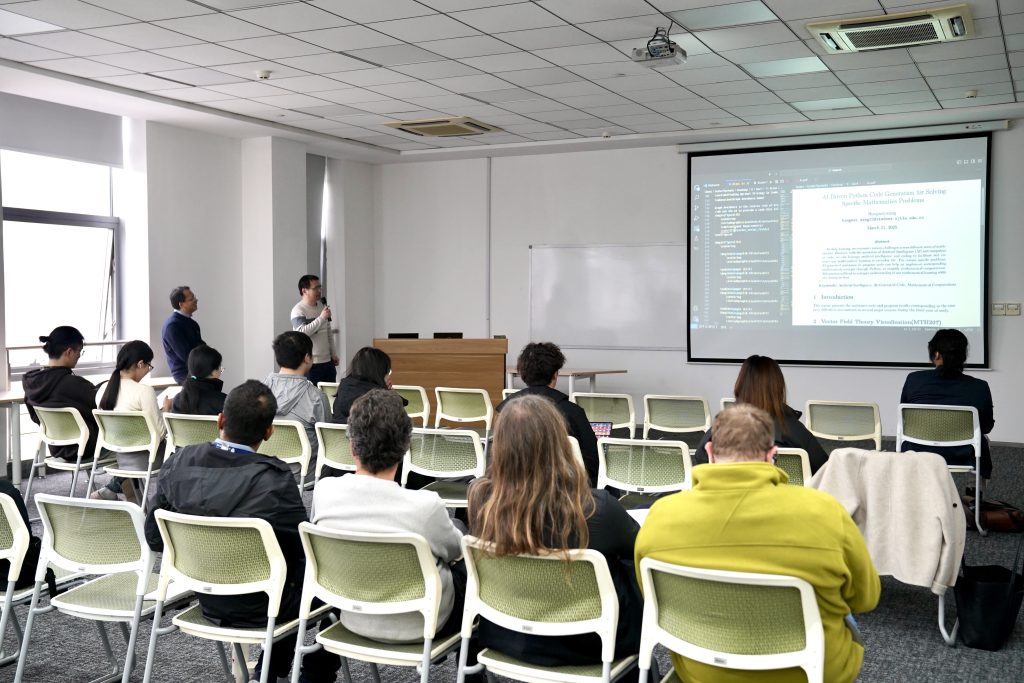
The seminar was organised by Dr Yi Hong and Dr Jinsong Xu from SMP. Eight groups of students shared their experiences in using large language models such as ChatGPT and DeepSeek to solve and explore mathematical problems. Their presentations demonstrated how these tools can help understand complex mathematical concepts, generate innovative solutions, and enhance learning efficiency.
Highlights of Student Presentations:
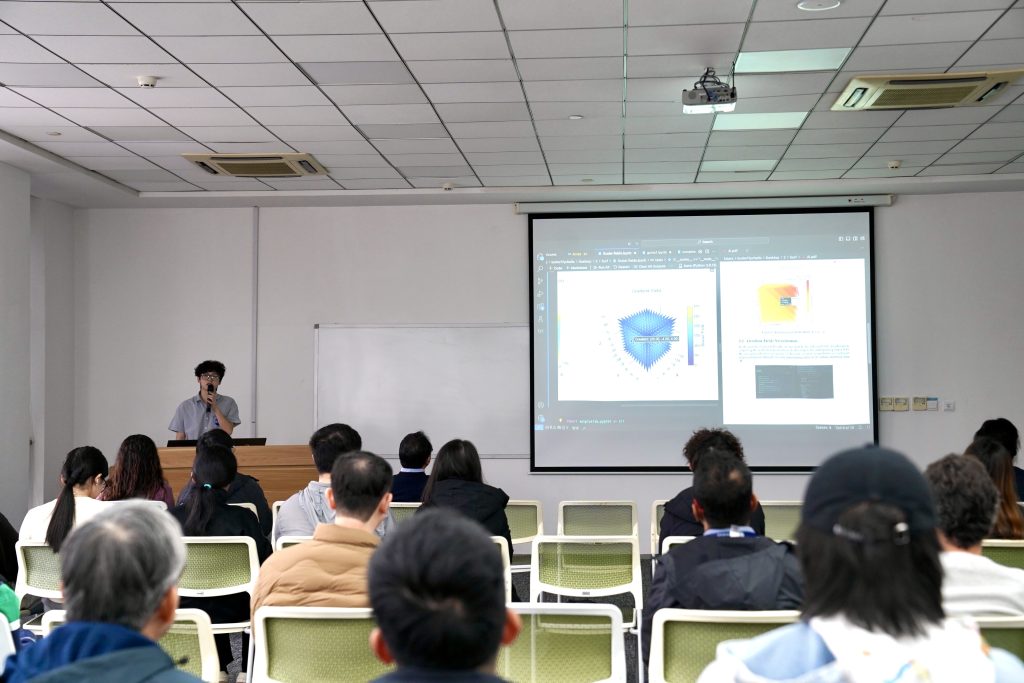
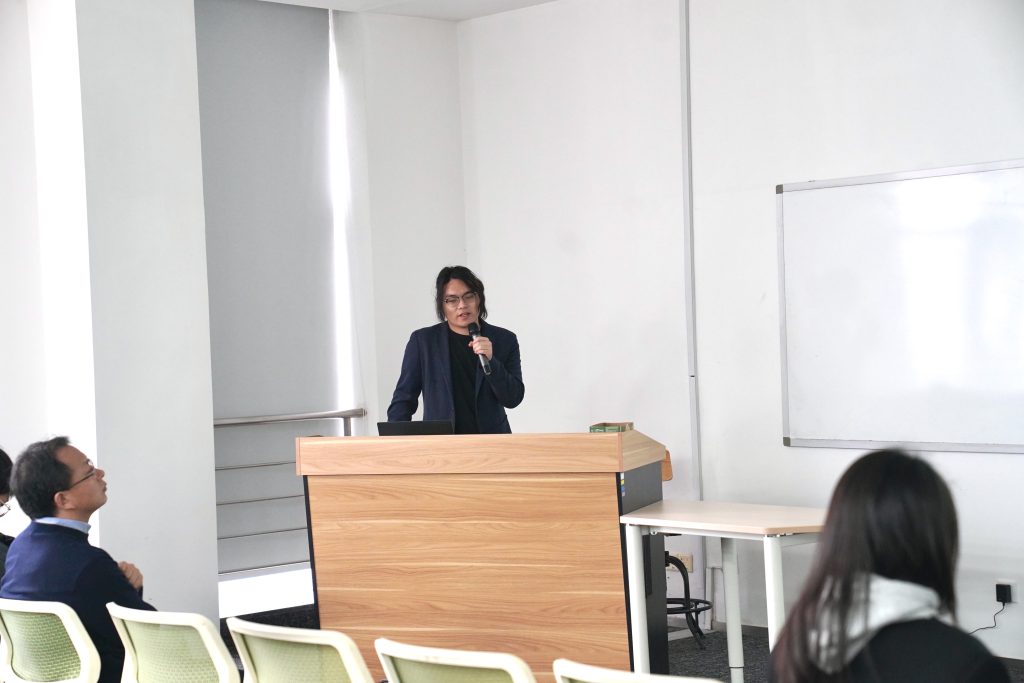
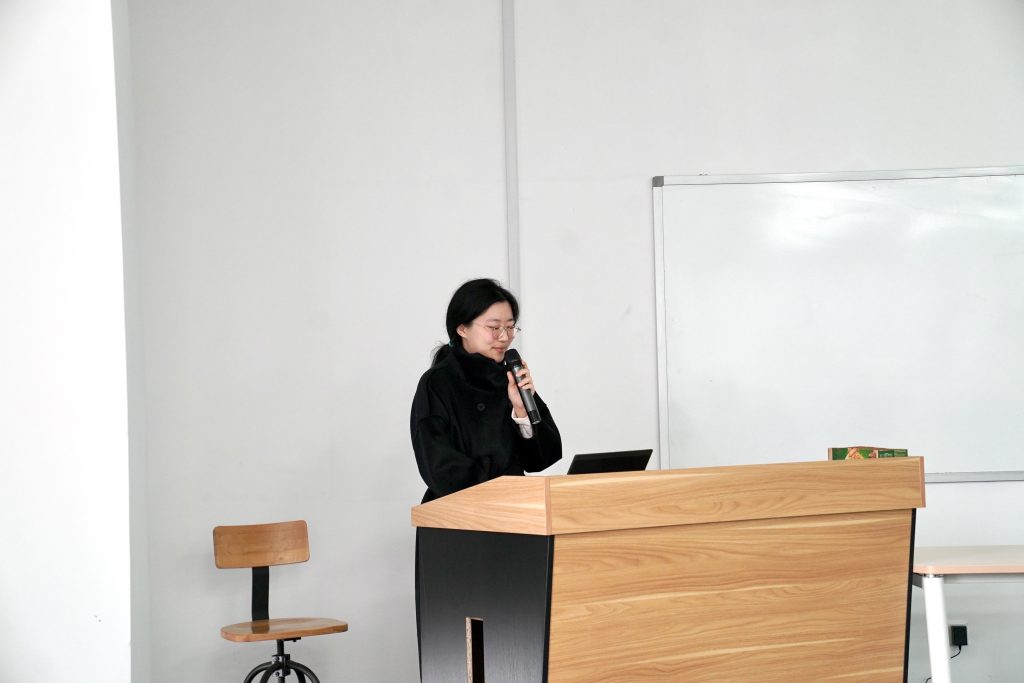
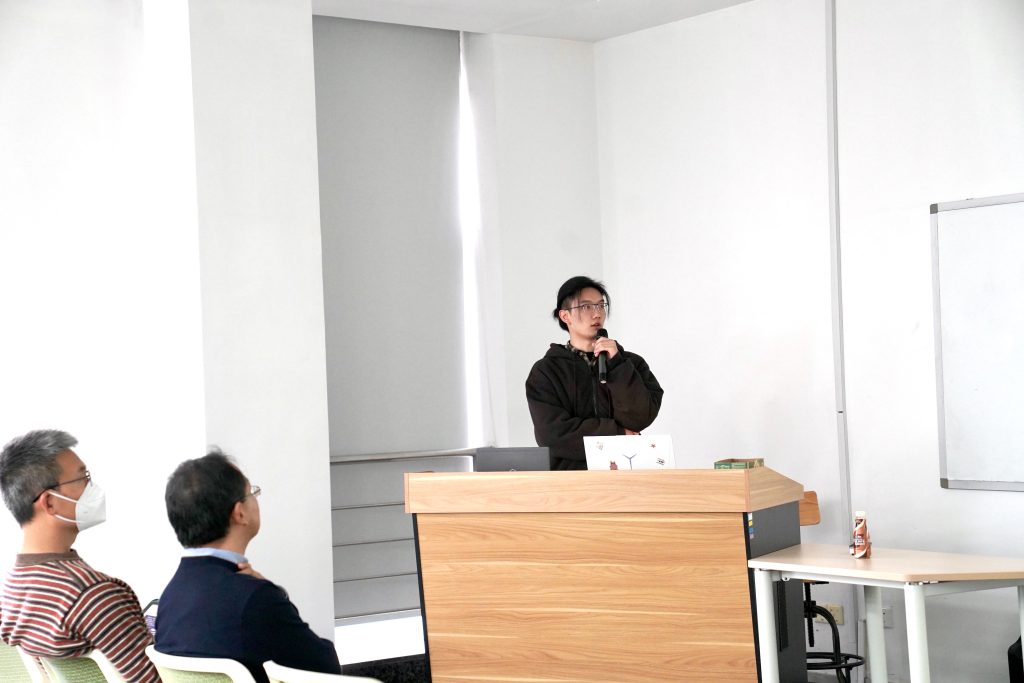
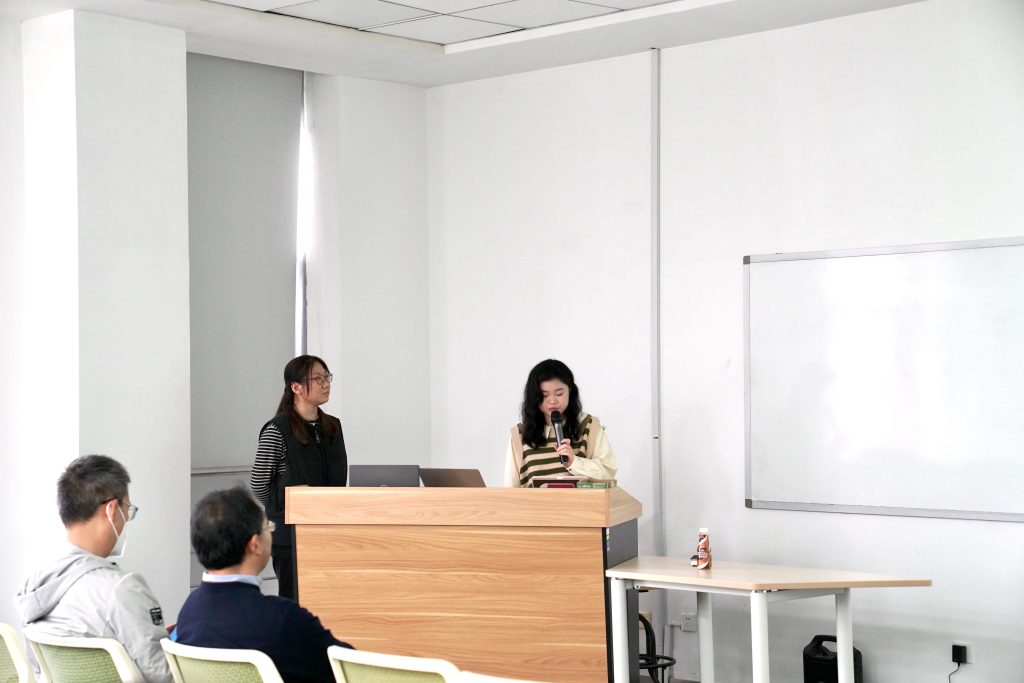
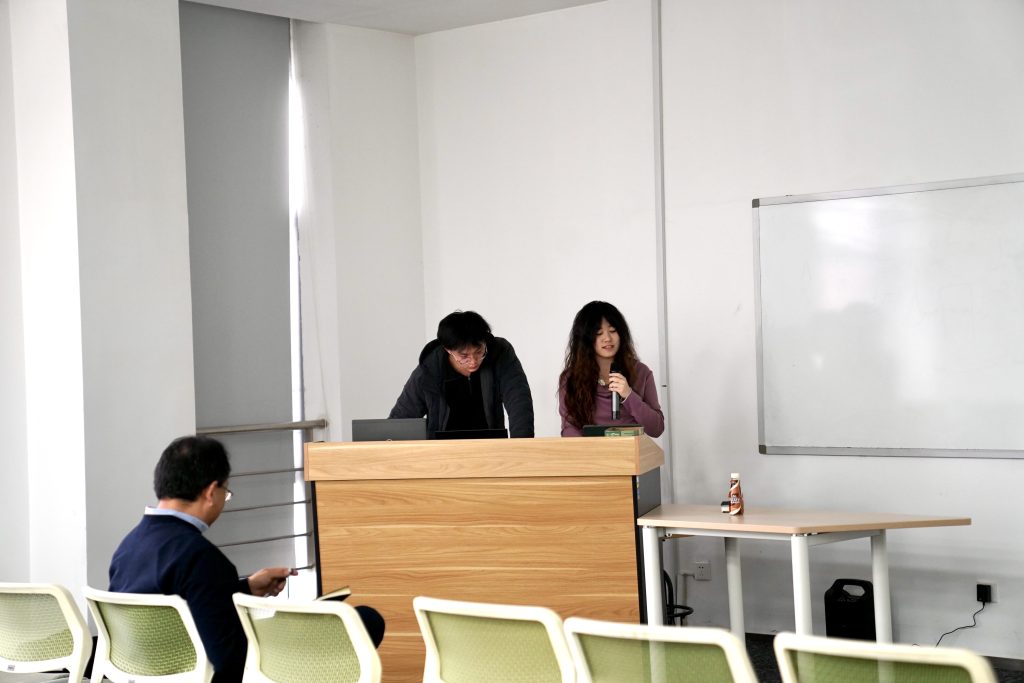
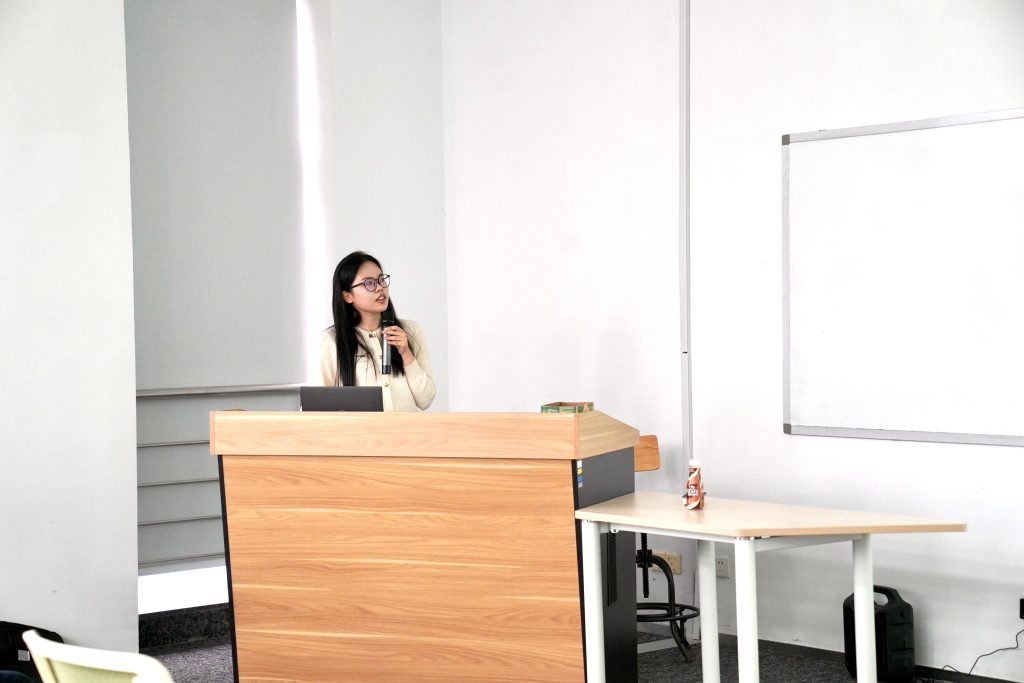
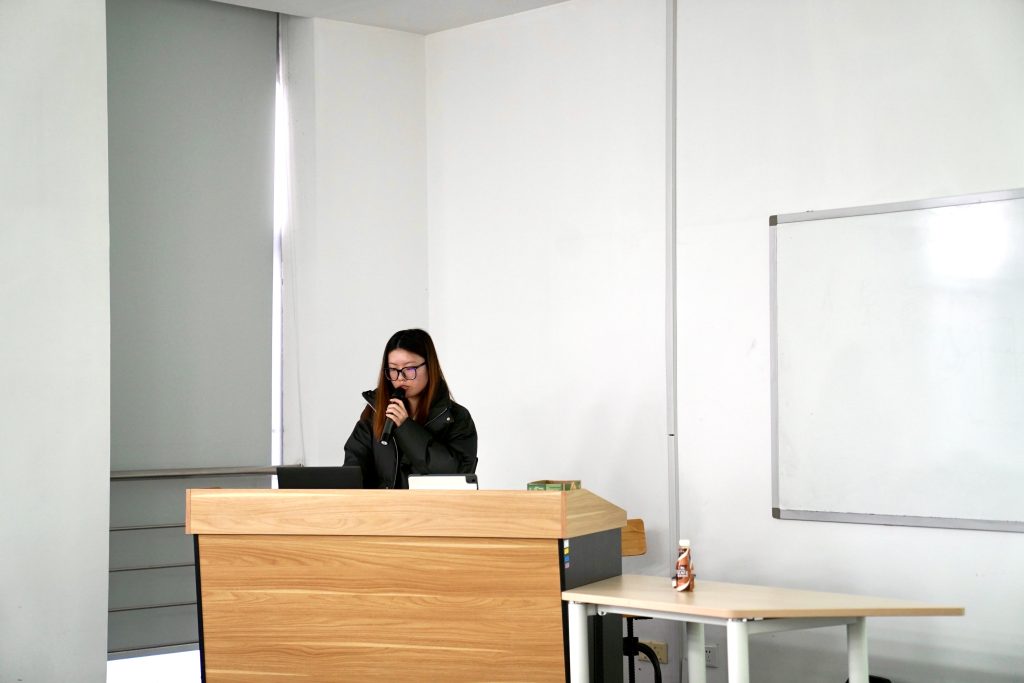
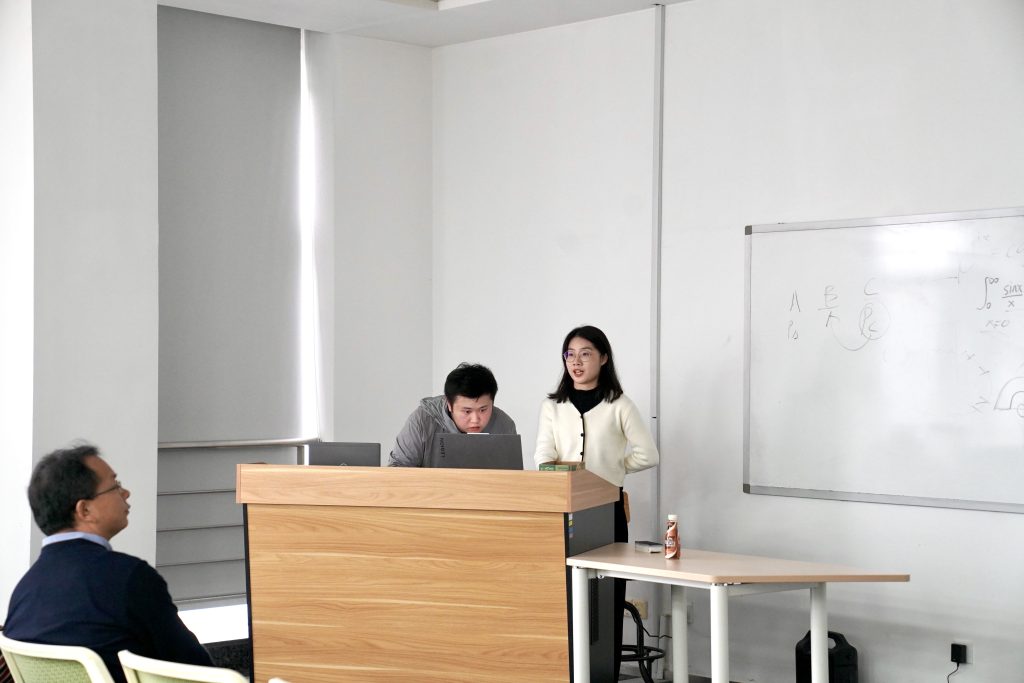
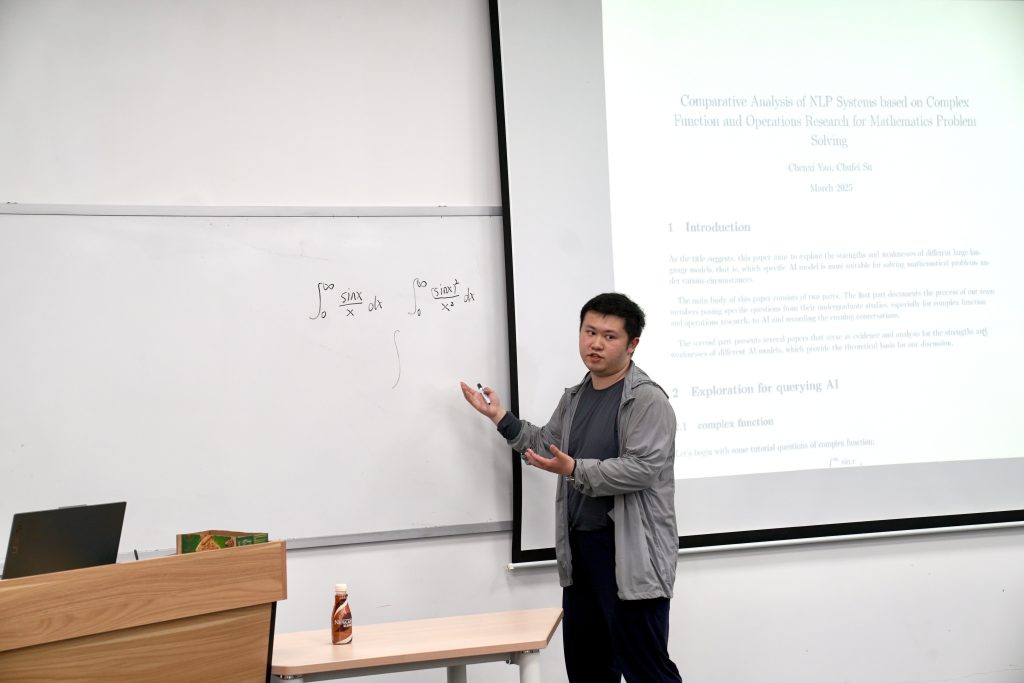
AI Empowers Mathematics Learning: Efficiency and Inspiration
Wang Hongwei shared, "The greatest advantage of AI is saving time. Our learning time is limited, and AI can help us quickly access vast resources from the internet, providing multiple perspectives and problem-solving ideas. Although not always entirely accurate, it at least offers some inspiration and direction."
Promoting the Deep Integration of AI and Education
This seminar not only provided students with a platform to showcase their learning achievements but also sparked in-depth discussions on the future of mathematics education in the era of artificial intelligence. The event aligns closely with XJTLU's vision of integrating AI into its curriculum, offering valuable insights for advancing the university's educational goals.
Through this event, SMP demonstrated its active exploration of the intersection between AI and mathematics, while also providing new ideas for the innovation of future educational models.
By Zhen Ma
Edited by Qinru Liu
18 Mar 2025








